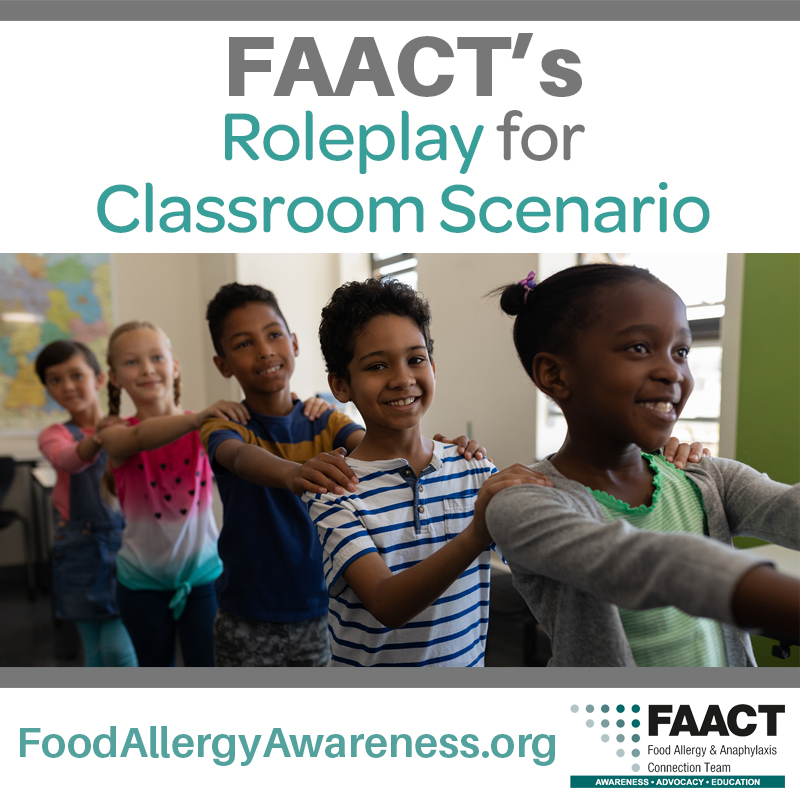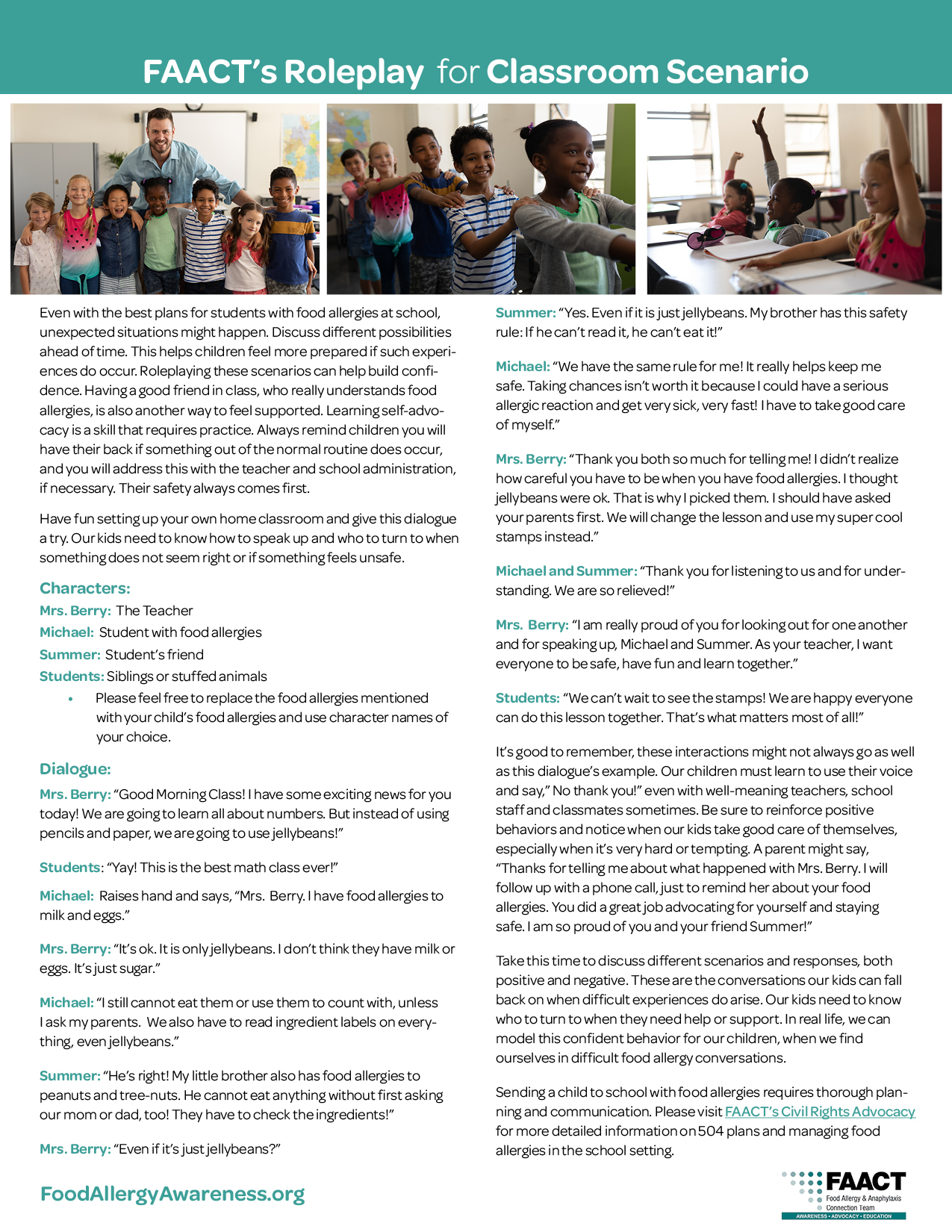Education
Family Activities at Home
Back to Category View
Roleplay for the Classroom Scenario
Even with the best plans for students with food allergies at school, unexpected situations might happen. Discuss different possibilities ahead of time. This helps children feel more prepared if such experiences do occur. Roleplaying these scenarios can help build confidence. Having a good friend in class, who really understands food allergies, is also another way to feel supported. Learning self-advocacy is a skill that requires practice. Always remind children you will have their back if something out of the normal routine does occur, and you will address this with the teacher and school administration, if necessary. Their safety always comes first.
Have fun setting up your own home classroom and give this dialogue a try. Our kids need to know how to speak up and who to turn to when something does not seem right or if something feels unsafe.
Characters:
- Mrs. Berry: The Teacher
- Michael: Student with food allergies
- Summer: Student’s friend
- Students: Siblings or stuffed animals
- Please feel free to replace the food allergies mentioned with your child’s food allergies and use character names of your choice.
Dialogue:
Mrs. Berry: “Good Morning Class! I have some exciting news for you today! We are going to learn all about numbers. But instead of using pencils and paper, we are going to use jellybeans!”
Students: “Yay! This is the best math class ever!”
Michael: Raises hand and says, “Mrs. Berry. I have food allergies to milk and eggs.”
Mrs. Berry: “It’s ok. It is only jellybeans. I don’t think they have milk or eggs. It’s just sugar.”
Michael: “I still cannot eat them or use them to count with, unless I ask my parents. We also have to read ingredient labels on everything, even jellybeans.”
Summer: “He’s right! My little brother also has food allergies to peanuts and tree-nuts. He cannot eat anything without first asking our mom or dad, too! They have to check the ingredients!”
Mrs. Berry: “Even if it’s just jellybeans?”
Summer: “Yes. Even if it is just jellybeans. My brother has this safety rule: If he can’t read it, he can’t eat it!”
Michael: “We have the same rule for me! It really helps keep me safe. Taking chances isn’t worth it because I could have a serious allergic reaction and get very sick, very fast! I have to take good care of myself.”
Mrs. Berry: “Thank you both so much for telling me! I didn’t realize how careful you have to be when you have food allergies. I thought jellybeans were ok. That is why I picked them. I should have asked your parents first. We will change the lesson and use my super cool stamps instead.”
Michael and Summer: “Thank you for listening to us and for understanding. We are so relieved!”
Mrs. Berry: “I am really proud of you for looking out for one another and for speaking up, Michael and Summer. As your teacher, I want everyone to be safe, have fun and learn together.”
Students: “We can’t wait to see the stamps! We are happy everyone can do this lesson together. That’s what matters most of all!”
It’s good to remember, these interactions might not always go as well as this dialogue’s example. Our children must learn to use their voice and say,” No thank you!” even with well-meaning teachers, school staff and classmates sometimes. Be sure to reinforce positive behaviors and notice when our kids take good care of themselves, especially when it’s very hard or tempting. A parent might say, “Thanks for telling me about what happened with Mrs. Berry. I will follow up with a phone call, just to remind her about your food allergies. You did a great job advocating for yourself and staying safe. I am so proud of you and your friend Summer!”
Take this time to discuss different scenarios and responses, both positive and negative. These are the conversations our kids can fall back on when difficult experiences do arise. Our kids need to know who to turn to when they need help or support. In real life, we can model this confident behavior for our children, when we find ourselves in difficult food allergy conversations.
Sending a child to school with food allergies requires thorough planning and communication. Please visit FAACT’s Civil Rights Advocacy for more detailed information on 504 plans and managing food allergies in the school setting.
Download FAACT's Roleplay for Classroom Scenario handout.
